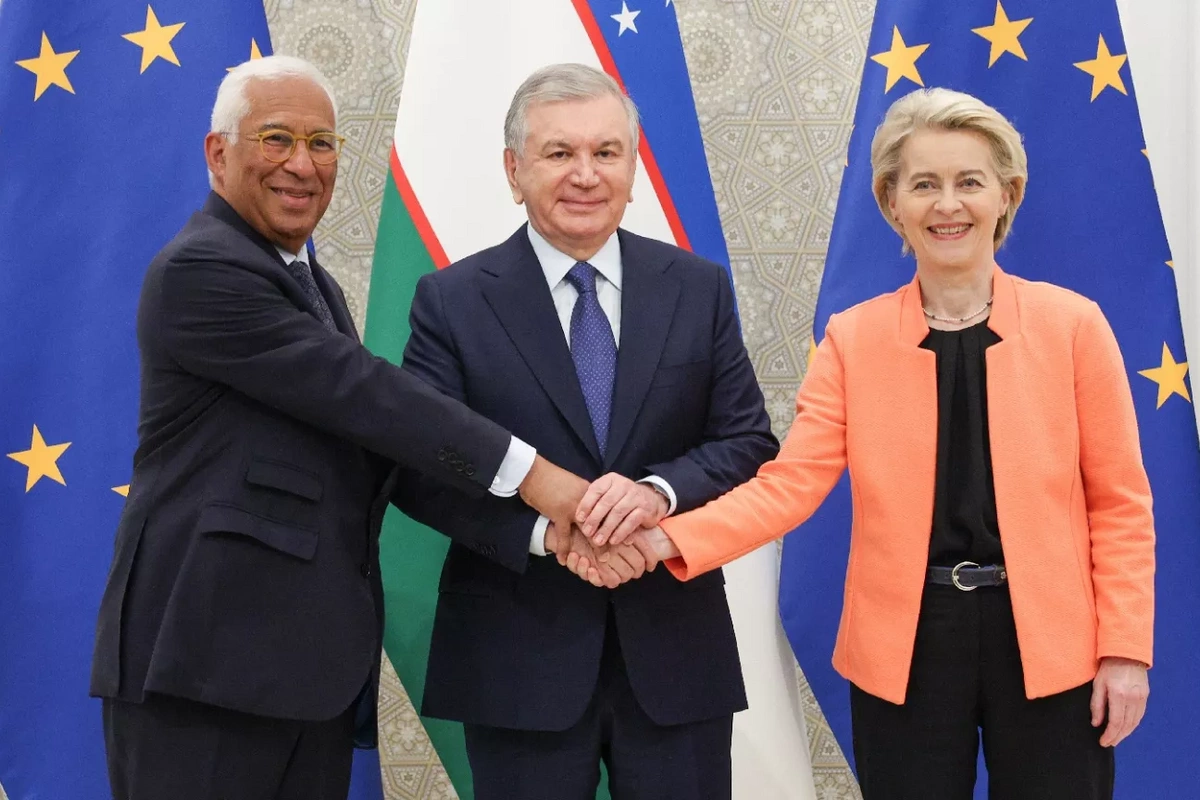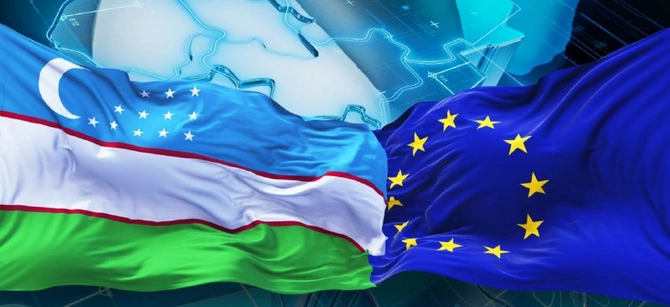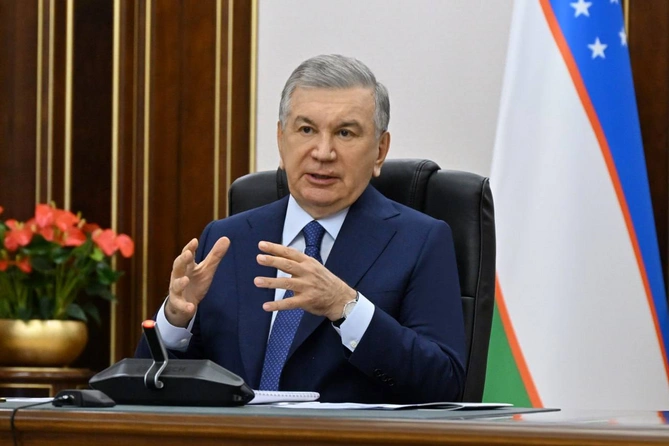
Copyright European Union
As expected, in the lead-up to the EU-Central Asia Summit in April, Brussels and Tashkent made a significant move toward a new phase of cooperation. During a trilateral meeting between the President of Uzbekistan, Shavkat Mirziyoyev, the President of the European Council, António Costa, and the President of the European Commission, Ursula von der Leyen, the parties reached an agreement to prepare for the signing of an Enhanced Partnership and Cooperation Agreement between the EU and Uzbekistan. The signing is scheduled for June 2025.
Both sides reaffirmed their commitment to advancing joint programs in innovation, green energy, mining, agriculture, transportation, logistics, digitalization, and other sectors. Additionally, a strategic decision was made to open a regional office of the European Investment Bank in Tashkent, aimed at strengthening Uzbekistan’s position as a potential international financial hub.
One of the interim steps toward achieving this ambitious agenda was the launch in April 2025 of five new EU-funded projects in Uzbekistan worth €2.9 million. These initiatives build on the eight grant programs launched in spring 2024, totaling over €3.5 million, focused on strengthening civil society, supporting women and youth, and promoting human rights.

Photo: Bakhtiyor Saidov/Telegram
Among the new initiatives, special attention is given to a project aimed at modernizing and digitalizing public services. Implemented with the support of the United Nations Development Programme (UNDP) and Uzbekistan’s Ministry of Justice, the project has a budget of nearly €5 million. Its goal is to improve access to government services for residents of remote regions, with particular emphasis on supporting women, youth, the elderly, and persons with disabilities, as well as promoting volunteerism and private sector engagement.
In addition to this, the EU announced the launch of five projects aimed at:
• Developing civil society and protecting women’s rights;
• Supporting human rights and advancing education (in cooperation with the International Commission of Jurists and the Center for Development Strategy);
• Engaging youth in national development and reform processes;
• Promoting digital rights and improving media literacy;
• Supporting inclusive development (in partnership with the Konrad Adenauer Foundation and the Yuksalish Movement).
According to experts, these initiatives serve as preparatory steps toward the primary goal of signing the Enhanced Partnership and Cooperation Agreement in June 2025. However, the significance of these measures goes far beyond bilateral relations. Many analysts view them as part of a broader European Union strategy to establish a new framework for cooperation with the entire Central Asian region.

Photo credit: president.uz
This broader vision was also highlighted by President Shavkat Mirziyoyev at the inaugural "Central Asia-EU" summit, where he stressed the importance of translating the strategic partnership into tangible projects and programs. Mirziyoyev called for moving beyond rhetoric to practical action, proposing the start of work on a comprehensive partnership agreement between the EU and all Central Asian states.
In this context, the upcoming signing with Uzbekistan could mark not just a bilateral success but a pivotal milestone in shaping a fundamentally new model of interaction between the European Union and the entire Central Asian region. In effect, this agreement could serve as a blueprint for future partnerships with other countries in the region, including Kazakhstan, Kyrgyzstan, Tajikistan, and Turkmenistan.
For the EU, this represents an opportunity to strengthen its economic, political, and technological presence in a region that is increasingly significant in global supply chains, energy security, and the transit corridor between Europe and Asia.
For Uzbekistan and its neighbors, it offers a chance to diversify external economic ties, reduce dependence on individual partners, and attract new investments in key sectors such as renewable energy, the digital economy, and infrastructure development. In this context, the successful implementation of the agreements could set an example for other post-Soviet regions, demonstrating that mutually beneficial cooperation with Europe is possible on the principles of equality, sustainable development, and mutual respect for strategic interests.
Share on social media